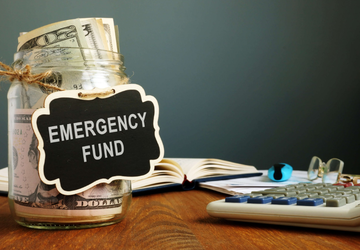How to Plan Financial Security for Family
In a world full of uncertainties, one thing that can bring peace of mind to your life is knowing that your family is financially secure. While it may sound daunting, planning for your family's financial security doesn't have to be complicated. In this article, we'll break down the steps in a simplified, jargon-free manner to help you chart a course toward a stable financial future for your loved ones.
Assess Your Current Financial Situation
The first step in planning for your family's financial security is to take a good, hard look at where you stand right now. List all your assets, including savings accounts, investments, and valuable possessions. Conversely, list your debts, such as mortgages, loans, or credit card balances. This gives you a clear picture of your net worth.
Next, calculate your monthly income and expenses. This will help you understand your cash flow, which is crucial for planning your family's financial security. Knowing where your money comes from and where it goes is the foundation of financial planning.
Set Clear Financial Goals
Once you know where you stand financially, it's time to set some goals. Think about what you want to achieve for your family in the short and long term. These goals could include:
· Creating an emergency fund
· Paying off debts
· Saving for your children's education
· Buying a home
· Retiring comfortably
Setting clear, achievable goals will guide your financial planning efforts and help you stay motivated.
Create a Budget
A budget acts as a financial plan, guiding you in managing your money. It lets you organize your earnings to cover costs and save for future goals. First, make a list of everything you spend on each month, like housing, utilities, food, travel, and fun activities. Remember to include occasional expenses such as vacations or fixing your car.
Next, compare the total amount you spend to what you earn. If you're spending more than you make, it's time to reduce unnecessary spending or find ways to earn more. The aim is to have some extra cash left after covering your expenses so you can save and invest in your family's future.
Build an Emergency Fund
Life can be unpredictable, and unexpected things can happen. An emergency fund is like a safety cushion for sudden costs such as medical bills, car fixing, or job loss. Try to save money equal to three to six months of your living expenses in this fund. You can start with a small amount if that's what works for you, but focus on steadily growing your emergency fund over time.
Manage Debt Wisely
Dealing with debt smartly is crucial for your financial stability. Debts with high interest rates, such as credit card balances, can consume a significant portion of your income, making saving challenging. Start by prioritizing the repayment of high-interest debts while making minimum payments on others.
Once you've paid off one debt, redirect that money towards the next one. This snowball effect will accelerate your debt clearance. Additionally, if it makes financial sense, you might want to explore consolidating your high-interest debts into a lower-interest loan. This step can further speed up your journey toward a debt-free life and ensure a secure financial future for your family.
Invest for the Future
Saving is important, but investing can make your money work even harder. Consider investing in a diversified portfolio of stocks, bonds, and other assets. If choosing specific investments makes you uneasy, consider using low-cost index funds or talking to a financial advisor.
The important thing is to begin early and stick to your investment plan over time. The power of compounding can significantly boost your wealth over time, so don't underestimate the value of investing wisely.
Protect Your Family with Insurance
Insurance is a crucial component of financial security. It provides a safety net for your family in case of unexpected events. Here are some types of insurance to consider:
· Life Insurance: This provides financial support to your family during your death.
· Health Insurance: Medical bills can be a major financial burden. Health insurance can help cover these costs.
· Disability Insurance: If you cannot work due to illness or injury, disability insurance can replace some of your income.
· Homeowners/Renters Insurance: Protect your home and belongings from damage or theft.
· Auto Insurance: Covers costs in case of accidents or damage to your vehicle.
Make sure you have the right insurance coverage for your family's needs. Review your policies regularly to ensure they are up to date.
Plan for Retirement
Retirement may seem far off, but the earlier you start planning, the better off you'll be. Utilize retirement savings plans such as 401(k)s or IRAs. If your employer matches your contribution, make sure to contribute enough to receive the full match – it's like getting free money.
Additionally, consider diversifying your retirement portfolio to reduce risk and periodically review your investment choices to ensure they align with your long-term goals. Remember, a well-planned retirement secures your future and allows you to enjoy the fruits of your labor when the time comes.
Educate Your Family
Financial security isn't just about the numbers; it's also about financial literacy. Teach your family members about money management, budgeting, and the importance of saving. This knowledge will empower them to make wise financial decisions in the future, ensuring that the legacy of financial security you've built together continues for generations to come.
Review and Adjust Your Plan
Life is constantly changing, so your financial plan should adapt as well. Review your financial goals and progress regularly. If your circumstances change – like getting married, having children, or changing jobs – update your plan accordingly. Remember, your family's financial security is an ongoing journey, and by staying flexible and making necessary adjustments, you'll be better prepared to navigate whatever life throws your way.
Conclusion
Planning for your family's financial security doesn't have to be complex or overwhelming. It's about taking small, manageable steps to protect your loved ones and enjoy a comfortable future.
By assessing your current situation, setting goals, and following these steps, you can create a solid financial foundation for your family's security and peace of mind. Remember, it's never too late to start, and every little bit of planning today can make a big difference tomorrow.












